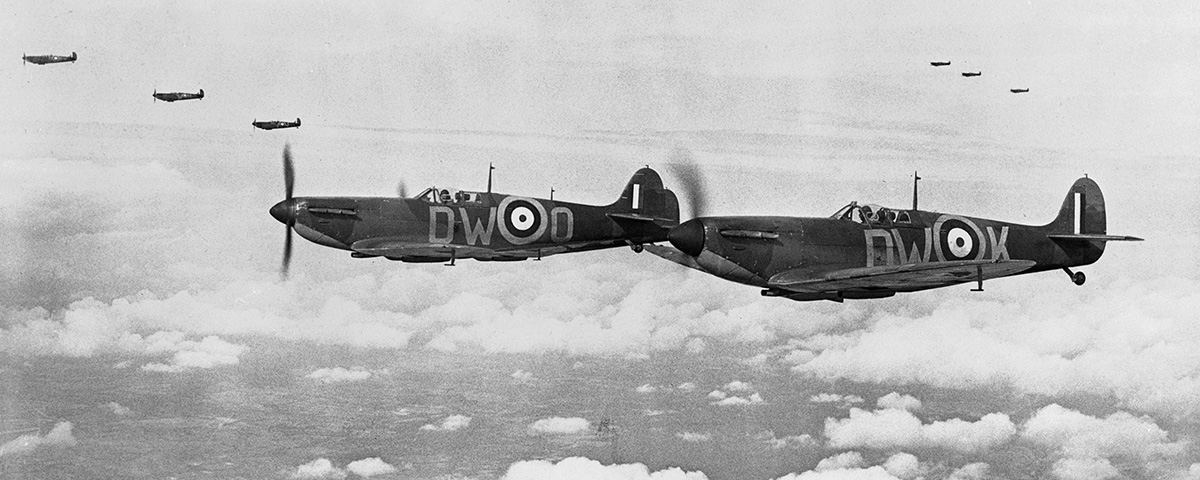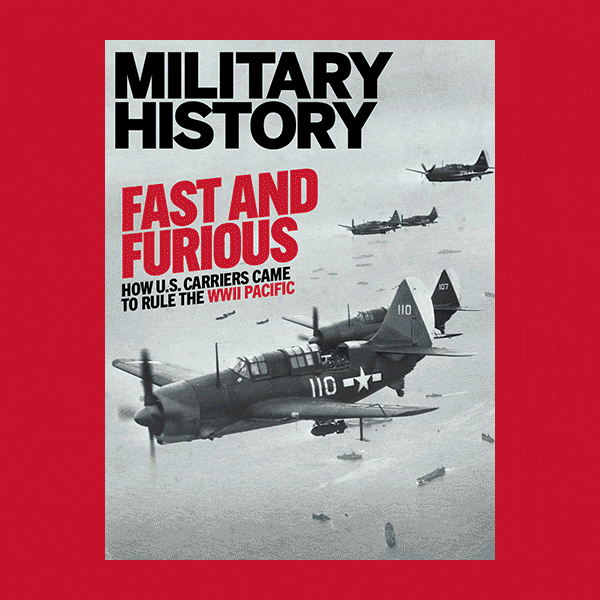The Battle of Britain was history’s first major confrontation fought entirely by aircraft. To equate it to the era of spaceflight, picture waking up one night to watch hundreds of satellites zapping each other with firefly flashes at orbital altitudes. Only then could you imagine what the English must have felt seeing hundreds of 300mph planes filling the skies over Britain.
The Battle of Britain was ostensibly the prelude to a cross-channel invasion of England, but even Adolf Hitler doubted his air force and army could pull that off. To prevent the Royal Navy from blowing any invasion fleet from the water would have required total air superiority, which the Luftwaffe never came close to achieving. More likely, Hitler hoped that swatting down the RAF would force the British to negotiate a peace.
The Battle of Britain began on July 10, 1940, and continued through October. Despite popular myth, the Brits were never in truly desperate straits. They were cranking out Spitfires and Hurricanes faster than they were being shot down (more serious was a shortage of experienced pilots), and the RAF had developed a superb ground-control system that routinely put its fighters above and dead on track toward the Luftwaffe attackers.
The British also developed a first-class radar network that targeted incoming planes as distant as 60 miles. Ju-87 dive-bombers tried to destroy the spidery antenna towers, but the slow Stukas were a turkey shoot for the Spits and Hurris.
On August 13, Adler Tag (Eagle Day), the Luftwaffe tried to silence the RAF once and for all. Its fighters did substantial damage but were stunned by the fury of the British defenders. The RAF rallied two days later, downing 90 German aircraft for a loss of 42 of their own. It was the Luftwaffe’s blackest day.
Little more than a week later, a lone He-111 bomber lost atop heavy cloud cover jettisoned its bombs. Unfortunately for the Germans, they fell on London. The Luftwaffe had carefully avoided London; it was the key to escalation they preferred to avoid.
Indeed, on the next night, the RAF sent 80-odd elderly Hampden bombers to Berlin. Like the Doolittle raid on Tokyo, the attack did little material damage, but it horrified the Germans. Stung, Hitler retaliated by ordering Hermann Göring to bomb London daily, and the course of the battle changed. The deadly Messerschmitts became hamstrung bomber escorts, and the Germans ignored Fighter Command’s airfields. The RAF was able to rearm, reequip, retrain and rest.
On September 7, the Luftwaffe sent 348 bombers and 617 fighters against London—the war’s first “thousand-plane raid.” Fighter Command pummeled the 20-mile-wide wave of warplanes. On the 15th the Luftwaffe lost 80 airplanes versus RAF losses of 35 when 300 fighters hit its bomber force at a time when Luftwaffe pilots were being told they faced “the last 50 Spitfires.” The Battle of Britain didn’t officially end until October 31, but on that day it was as good as won.
Lessons from the Battle of Britain
- Bad intelligence is worse than none at all. German info about Fighter Command was stunningly weak despite constant recon flights over England. Parked airplanes were misidentified. Bomber bases were tagged as fighter fields.
- Don’t tie up your resources. When the Luftwaffe began losing bombers by the dozens, Göring demanded his Bf-109s cover the bombers, negating their usefulness as free-ranging scramblers.
- Avoid multipurpose aircraft. The Messerschmitt Bf-110 was a twin-engine, long-range quasi-fighter that itself had to be escorted by Bf-109s.
- Never underestimate an enemy’s production capacity. Göring seemed to assume that every Spitfire and Hurricane destroyed was one fewer for the RAF. But the Brits were repairing and building fighters faster than they were being shot down.
- Don’t change horses midstream. If you’ve set out to defeat an air force, either do it, or go home to fight another day. The mid-September shift to attacks on London gave the RAF breathing room.
- Don’t write checks you can’t cash. Göring vowed that Allied bombers would never breach Berlin’s cordon of flak guns. That they did forced Hitler to overreact and demand the destruction of London.
- Billy Mitchell’s “the bombers will always get through” doctrine is wrong. Even though the RAF’s bombers were obsolescent and the Germans had the best medium-range bombers in the world, Brit fighters won the battle.






